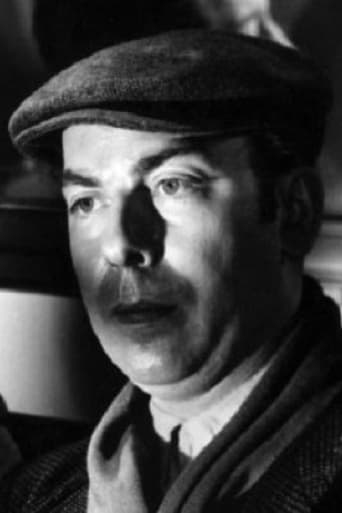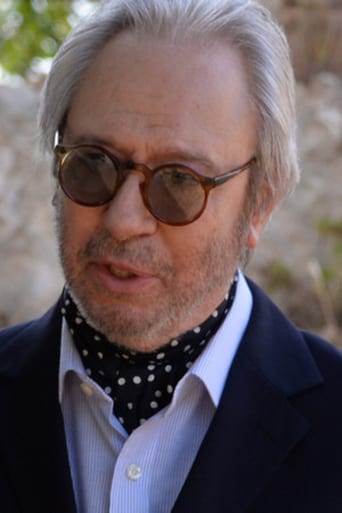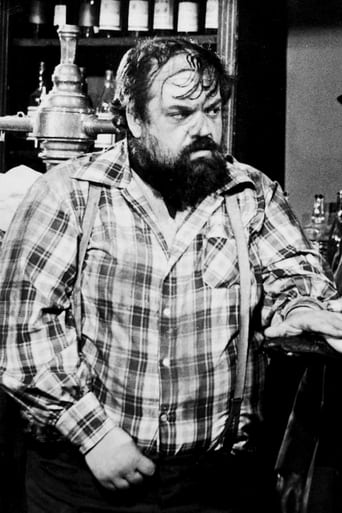Bergorks
If you like to be scared, if you like to laugh, and if you like to learn a thing or two at the movies, this absolutely cannot be missed.
Zlatica
One of the worst ways to make a cult movie is to set out to make a cult movie.
Dana
An old-fashioned movie made with new-fashioned finesse.
drjgardner
Boy is this film bad. It consists of talking heads going back and forth, talking about people we haven't met or even know about. It's all Greek to me, but it's Italian, and for a goodly portion of the film it looks like it's been dubbed, which it hasn't. I guess the track is off kilter.The language itself is pure modern, with almost no hints of the true nature of Greek speech in 400 BC. And none of the beauty of Socrates speeches.It was so bad I didn't see it through to the end. So maybe it got a lot better after the first 30 minutes.
Robert J. Maxwell
Rosselini's made-for-television movie ought to be shown in high school classes, if only to inform today's students that there was once a Democracy in a place called Greece and that it was the home of many philosophers, Socrates arguably chief among them. Generally speaking, Americans seem pretty dumb today, especially students. Tasks that were routine assignments when I was in high school are now found in Advanced Placement classes. ("The Great Gatsby", eg.) I suspect Socrates might have agreed with me. Here's a quote often attributed to him, though there's no real proof he said it."The children now love luxury; they have bad manners, contempt for authority; they show disrespect for elders and love chatter in place of exercise. Children are now tyrants, not the servants of their households. They no longer rise when elders enter the room. They contradict their parents, chatter before company, gobble up dainties at the table, cross their legs, and tyrannize their teachers."I'm with Socrates when he complains about the young. I wasn't with him when I was young but now that I'm old, well, I'm with him.At the same time, Socrates is sort of bad company when you get right down to it. After a lifetime of teaching, and at the age of seventy, he was brought before the judges in Athens accused of all kinds of crimes, from corrupting the youth of Athens and not believing in the gods to wearing white after Labor Day. After an eloquent and non-apologetic Apologia, he was sentenced to death, drank a cup of hemlock, and died content.Considering that this was never intended to be a Major Motion Picture, it's quite good. Jean Sylvère who plays Socrates LOOKS a lot like the bust of Socrates that many have seen, the bust with the nose broken off, although Sylvère's nose is in fact intact. And the dialog, apparently lifted from Plato, is an excellent illustration of the Socratic method. I understand some modern professor's use some version of the Socratic method. You don't take a position and argue it. You ask enough of the right KINDS of questions until your adversary finds himself making the argument for you. I'll give just one of the briefest examples. Socrates is about to take the hemlock when his wife, Xanthippe, runs to him, flings her arms around the old man's neck, and cries, "You've been convicted so unjustly!", to which Socrates replies over her shoulder, "Would you rather have me convicted justly?" My impression was always that Xanthippe was something of a nag but she redeems herself here.The values of the production are spare but adequate to the task. True, there is a lot of talk and nobody's head gets wrenched off, but the talk is so enthralling, so unusual in today's discourse, that I found it eminently followable. I suspect even high school students might get a lot out of it.
FilmCriticLalitRao
Apart from his feature films,Italian director Roberto Rossellini was famous for some of his films which were made for television.It was in these films that he told the stories of some of the greatest philosophers who took birth on earth. Among these films one can mention the names of films about Blaise Pascal,Saint Augustine,René Descartes and Socrates.The film 'Socrates' is not a biography per se.It does not show all the important events which took place in the life of Socrates.It is an important film not only for viewers of cinema and television but also for admirers of philosophy.As a filmmaker,apart from 'Socrates', Rossellini reveals a lot about the times in which the great philosopher flourished.One gets to see the state of Athens when Socrates was condemned.The film 'Socrates' was not shot in Greece but most viewers wouldn't be able to recognize that the locations used in the film are in Spain.Locations are of less importance if the cast is good.This is one reason why actor Jean Sylvère has done a great job.He is perfect in his role as 'Socrates'.He looks so convincing as if the real Greek philosopher is in our midst.This is one of the main points of this film.
zetes
Apparently, no one else has seen this. That's a pity. Anyone who has studied Plato would love it, I think. Of course, it doesn't beat the actual reading of Plato's dialogues, but it's a nice supplement. The adaptation is straightforward. The Euthyphro, Apology, Crito, and Phaedo are reduced in size, but their contents are there. Also there is to be found pieces of The Republic and many others that I probably haven't read yet (the Protagoras and Lysias are mentioned directly). The Symposium, which is the only dialogue that I can say I know particularly well, is briefly alluded to. There's also a great scene where a man teases Socrates by citing Aristophanes' The Clouds, which was the play that, according to the Apology, sowed the seeds of his death. Rosselini's direction is subtle and exquisite. The camera moves perfectly. The production design is great. A lot of research went into this to make it as accurate as possible. I don't know of any film that has done as well in these aspects. The acting is also perfect. The man who plays Socrates IS Socrates. 9/10.




